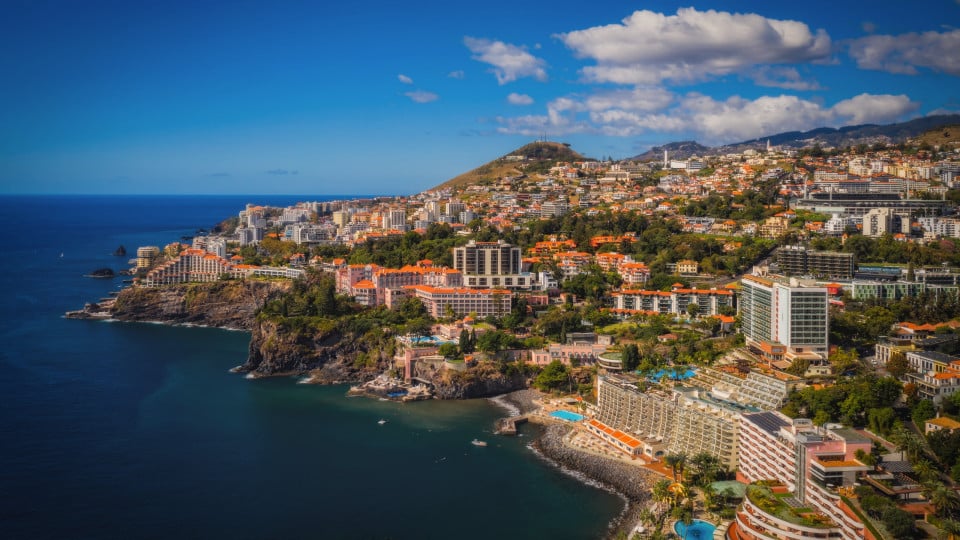The Autonomous Region of Madeira has been waiting eight years for the review of the air mobility allowance model that was legally foreseen, the Regional Secretary for Economy, Tourism and Culture said today.
For eight years we have been waiting for the revision [of the mobility allowance law] that the law itself enshrined,” said Eduardo Jesus in the Legislative Assembly of Madeira, on the second day of the debate on the Program of the 15th Regional Government, led by social democrat Miguel Albuquerque.
The minister recalled that six months after the model came into force, on September 1, 2015, Madeira advocated its revision, “leaving successive suggestions”, with the stipulation that it would be evaluated annually, which never happened.
The social mobility allowance allows residents of Madeira to pay 86 euros for air travel between the region and the mainland, with 65 euros for students.
In the Azores, the social mobility allowance allows residents of the archipelago to travel to the mainland with a maximum airfare of 134 euros. However, it is necessary to initially purchase the ticket at the sale price and only after the trip has taken place is the entire amount above this target of 134 euros reimbursed by the state.
“We’re unlikely to get better than what we have today, but it can be optimized,” said Eduardo Jesus, stressing that the “review has to be done now”.
The regional secretary also highlighted the “strong impetus” of the tourism sector for the region’s economic growth cycle, accounting for 29% of the Gross Domestic Product (GDP).
“We are committed to continuing everything that has been achieved positively for Madeira and Porto Santo and to going further,” he said, speaking of the Regional Government’s commitment to affirming the region as unique “for all ages, nationalities and all year round”.
Reducing asymmetries between the archipelago’s municipalities and “paying special attention to the region’s historical documentary heritage” were other priorities highlighted by Eduardo Jesus.
In the debate, Patrícia Agrela, from the PS (the largest opposition party), considered that “it is essential for Madeira and Porto Santo to be able to diversify their economy”, so that they are not dependent only on certain sectors.
Also from the PS, Sancha Campanela considered that the Government Program does not advocate “more and better culture”, reiterating that the document does not deserve the confidence of the Socialists.
JPP MP Carlos Silva confronted the regional secretary with the problem of the tender for the air link between Madeira and Porto Santo, with the official stating that the situation is dependent on a court decision after being challenged by one of the bidders.
Mónica Freitas, the sole PAN member of parliament, said that the Government Program “has no practical strategy” for achieving the sustainability of Madeira’s destination, also pointing out that it does not specify the destination of the tourist tax.
For his part, IL MP Nuno Morna spoke of an “all-powerful state”, criticizing the idea of “specific tax incentives and generous subsidies” on the part of the executive.
Another concern raised by some MPs, namely from Chega and CDS-PP, was the issue of the overload of some tourist spots, such as Pico do Areeiro, to which the secretary replied that he has been looking for solutions and making suggestions.
The debate on the Regional Government Program, in the form of a motion of confidence, began today and will end on Thursday with the vote on the document.
If the already announced votes against by PS, Chega and JPP, which total 24 deputies out of 47, are confirmed, the document will be rejected.
In the early regional elections on May 26, the PSD elected 19 MPs, five seats short of an absolute majority. The PS elected 11 MPs, the JPP nine, Chega four and the CDS-PP two, while IL and PAN elected one MP each.
After the elections, the PSD signed a parliamentary agreement with the Christian Democrats, but still fell short of an absolute majority – the two parties have 21 seats and need 24.
The May elections took place eight months after Madeira’s legislative elections on September 24, 2023, after the President of the Republic, Marcelo Rebelo de Sousa, dissolved the Madeiran parliament following the political crisis triggered in January when Miguel Albuquerque was indicted in a case involving alleged corruption.









